South Korea Expands FX Rules to Stablecoins
Abstract:South Korea expands FX regulations to include stablecoins, focusing on cross-border transactions and investor protection measures for safer crypto trading.
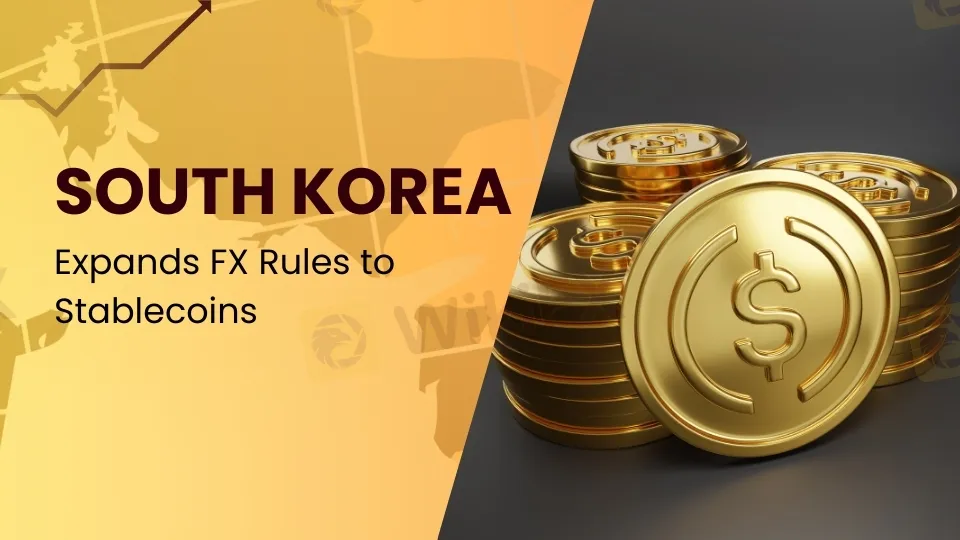
South Korea's government is adding stablecoins used for cross-border deals to the list of things that can't be used as money. The Ministry of Economy and Finance will take new steps to improve stablecoin operations. Stronger rules are needed for stablecoins as they are used more in global activities.
Virtual Asset User Protection Act to Regulate Stablecoins
Under the next part of the Virtual Asset User Protection Act, the Financial Services Commission (FSC) will be in charge of stablecoins. This will clarify how stablecoins tied to the South Korean won should be used. Also, the FSC will make rules for stablecoins that are linked to other currencies. For this, the FSC will work with Japan and the EU authorities. Japan just recently changed the rules for stablecoins, and the EU has put the Markets in Crypto-Assets (MiCA) rules into effect.
New Rules for Using Stablecoins Across Borders
The rules for foreign exchange in South Korea will now cover deals with stablecoins that happen across borders. The market for stablecoins is changing a lot. To keep the market steady and lower the risks of foreign trades, the goal is to have clear rules for creating and selling stablecoins. These rules fix the problems with stablecoins, especially the fact that they make it easy to move money between countries.
Cryptocurrency Tax Delay Extended to 2028
The 20% tax on bitcoin gains will not go into effect in South Korea until 2028. This is the third time that this tax has been put off. It was first planned that the tax would go into effect in January 2022, but investors and experts would prefer something else. It would be right to tax cryptocurrencies with clear rules, said President Yoon Suk-yeol. This wait protects investors and gives the crypto market time to grow.

The goal of the wait is to help South Korea's crypto market grow. It gives the business community time to develop while officials work on making things more transparent and safer for investors. This change will be closely watched by crypto buyers, traders, and experts because it could have an impact on South Korea's place in the world market.
Virtual Asset Protection Act Adds Stricter Crypto Rules
When it went into action on July 19, the Virtual Asset User Protection Act made the rules for virtual asset service providers (VASPs) tighter. As part of these rules, users' funds must be kept separate, and customer accounts must be maintained with banks. To increase customer trust, the rule also says that tokens posted on platforms must be reviewed on a frequent basis.
If you don't follow these rules, you could face jail time or fines of up to five times the illegal earnings. This act aims to improve the crypto market for buyers and open up the market for digital assets.
Setting the Scene: What We Can Learn from Japan and the EU
The new rules in South Korea are part of a global push to keep stablecoins and other digital assets under control. After Terra failed in 2022, Japan put in place rules that stopped non-banking organizations from issuing stablecoins. The rules were lifted in 2023. EU's MiCA law had an effect on the global stablecoin market as well, forcing assets that didn't follow the rules to be taken off of platforms.
Like the rest of the world, South Korea is trying to control stablecoins, protect investors, and put off crypto taxes. Focusing on stablecoin foreign exchange rules and making it easier to use stablecoins to buy things across borders, South Korea wants to ensure everyone has a safe and transparent financial environment.
Stay informed on the latest in South Korea's stablecoin regulations and global crypto trends. Visit WikiFX news for full coverage and expert insights.

Read more
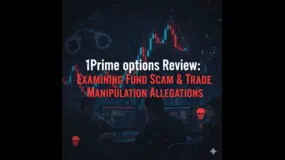
1Prime options Review: Examining Fund Scam & Trade Manipulation Allegations
Did you find trading with 1Prime options fraudulent? Were your funds scammed while trading on the broker’s platform? Did you witness unfair spreads and non-transparent fees on the platform? Was your forex trading account blocked by the broker despite successful verification? These are some issues that make the traders’ experience not-so memorable. In this 1Prime options review article, we have investigated the broker in light of several complaints. Keep reading!
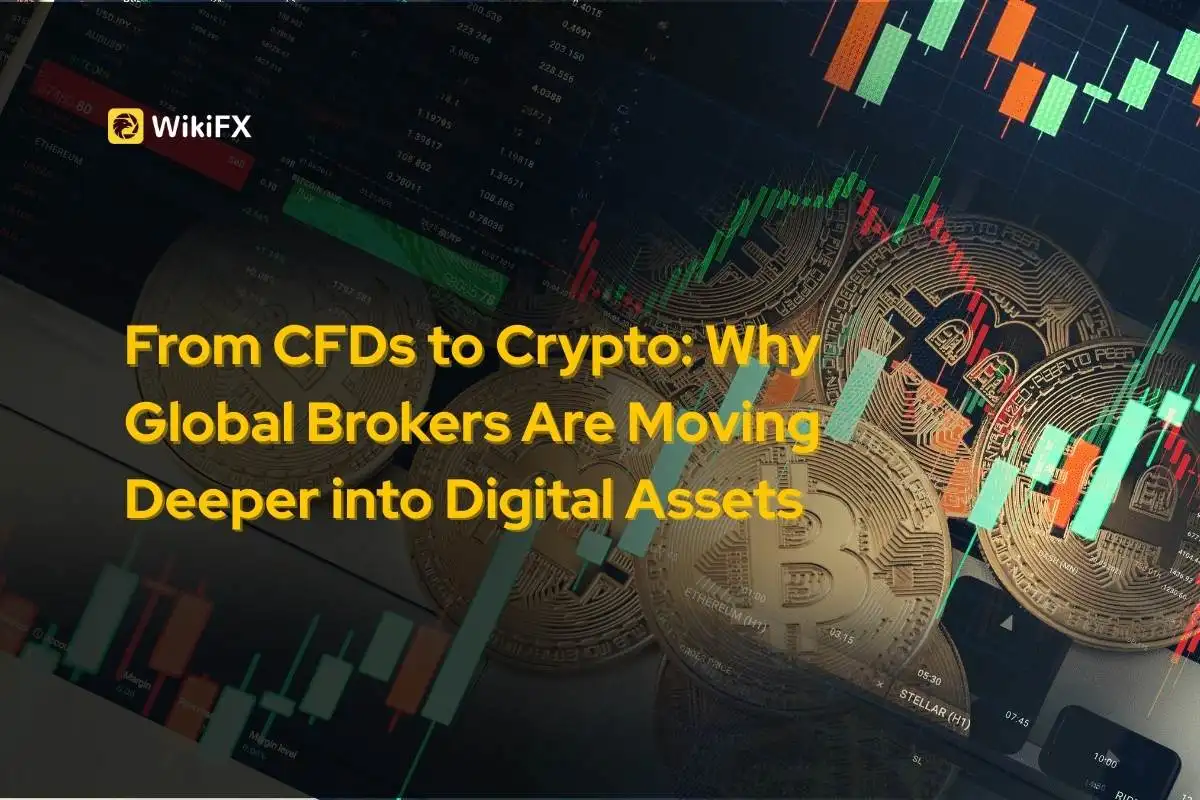
From CFDs to Crypto: Why Global Brokers Are Moving Deeper into Digital Assets
As regulation matures, brokers are entering crypto at scale. IG Group and Capital.com signal a broader shift toward compliant digital asset trading.
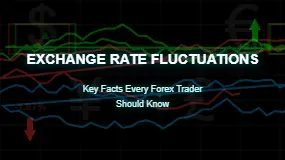
Exchange Rate Fluctuations: Key Facts Every Forex Trader Should Know
The forex market is a happening place with currency pairs getting traded almost non-stop for five days a week. Some currencies become stronger, some become weaker, and some remain neutral or rangebound. If you talk about the Indian National Rupee (INR), it has dipped sharply against major currencies globally over the past year. The USD/INR was valued at around 85-86 in Feb 2025. As we stand in Feb 2026, the value has dipped to over 90. The dip or rise, whatever the case may be, impacts our daily lives. It determines the price of an overseas holiday and imported goods, while influencing foreign investors’ perception of a country. The foreign exchange rates change constantly, sometimes multiple times a day, amid breaking news in the economic and political spheres globally. In this article, we have uncovered details on exchange rate fluctuations and key facts that every trader should know regarding these. Read on!
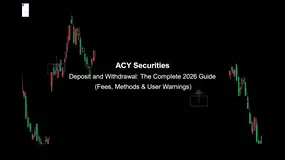
ACY Securities Deposit and Withdrawal: The Complete 2025 Guide (Fees, Methods & User Warnings)
Understanding how to add funds to your account and, more importantly, how to take them out is essential for safe trading. For any trader thinking about ACY Securities, making an ACY SECURITIES deposit is simple, but the ACY SECURITIES withdrawal process has many serious complaints and concerns. While ACY says it is an established, regulated broker, many users have complained specifically about withdrawal problems, creating a confusing and often contradictory picture. This guide provides a complete and critical analysis. We will first explain the official steps for deposits and withdrawals, including methods, fees, and stated timelines. We will then take a deep look at patterns found in over 180 real user complaints, examining the potential warning signs and risks. By combining official information with real-world user experiences and regulatory warnings, this article aims to give you the clarity needed to make an informed decision about the safety of your funds with ACY Securities.
WikiFX Broker
Latest News
You Keep Blowing Accounts Because Nobody Taught You This
HTFX Review: Safety, Regulation & Forex Trading Details
Promised 30% Returns, Lost RM630,000 Instead
Copy-Paste Broker Scams: How Template Websites Are Used to Impersonate Regulated FX Firms
BP PRIME Review: Safe Broker or Risky Broker
EXTREDE Review (2026): A Complete Look at the Serious Warning Signs
Effective Stop Loss Trading Strategies
Q4 GDP Unexpectedly Grows At 1.4%, Half Expected Pace, As Government Shutdown Hits Q4 Growth
Q4 GDP Unexpectedly Grows At 1.4%, Half Expected Pace, As Government Shutdown Slams Growth
BitPania Review 2026: Is this Broker Safe?
Rate Calc
